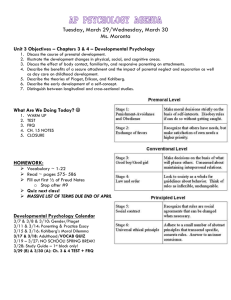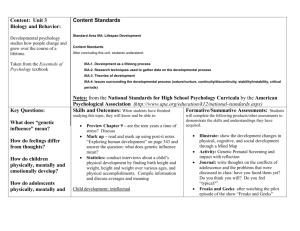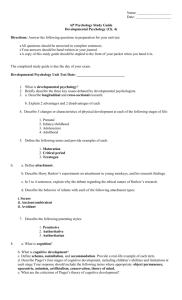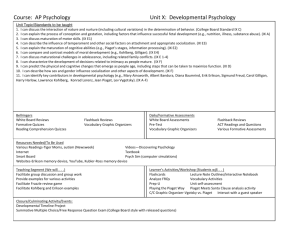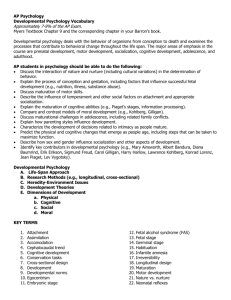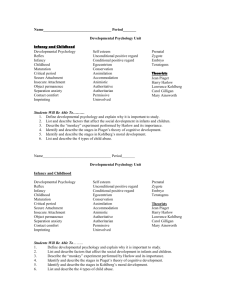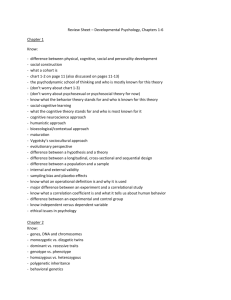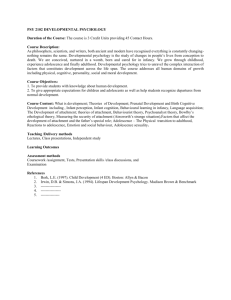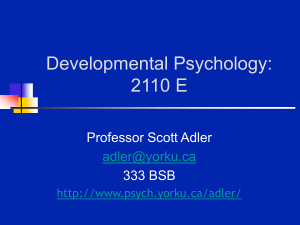Advanced Placement Psychology Learning Objectives
advertisement
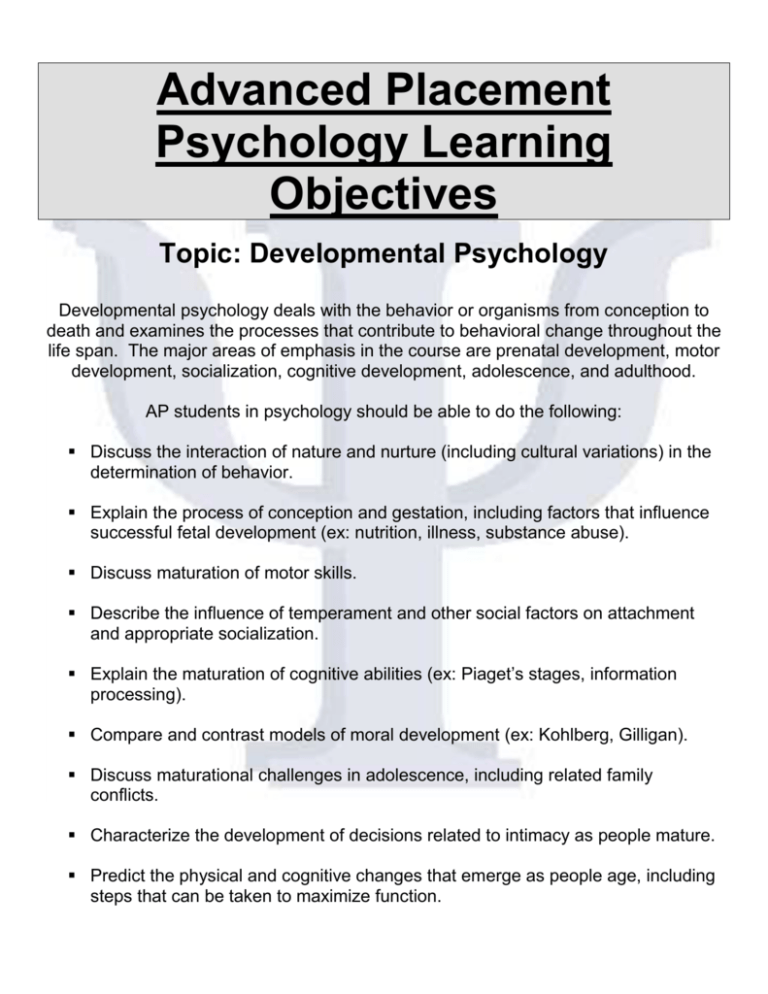
Advanced Placement Psychology Learning Objectives Topic: Developmental Psychology Developmental psychology deals with the behavior or organisms from conception to death and examines the processes that contribute to behavioral change throughout the life span. The major areas of emphasis in the course are prenatal development, motor development, socialization, cognitive development, adolescence, and adulthood. AP students in psychology should be able to do the following: Discuss the interaction of nature and nurture (including cultural variations) in the determination of behavior. Explain the process of conception and gestation, including factors that influence successful fetal development (ex: nutrition, illness, substance abuse). Discuss maturation of motor skills. Describe the influence of temperament and other social factors on attachment and appropriate socialization. Explain the maturation of cognitive abilities (ex: Piaget’s stages, information processing). Compare and contrast models of moral development (ex: Kohlberg, Gilligan). Discuss maturational challenges in adolescence, including related family conflicts. Characterize the development of decisions related to intimacy as people mature. Predict the physical and cognitive changes that emerge as people age, including steps that can be taken to maximize function. Describe how sex and gender influence socialization and other aspects of development. Identify key contributors in developmental psychology (ex: Mary Ainsworth, Albert Bandura, Diana Baumrind, Erik Erikson, Sigmund Freud, Carol Gilliagn, Harry Harlow, Lawrence Kohlberg, Konrad Lorenz, Jean Piaget, Lev Vygotsky)

